© 2022 All Rights Reserved. Don’t distribute or repurpose this work with out written permission from the copyright holder(s).
Printed from https://www.damninteresting.com/devouring-the-heart-of-portugal/
On the morning of Thursday, 04 December 1924, a tall and well-dressed Dutch dealer named Karel Marang strolled alongside Nice Winchester Road within the Metropolis of London, among the many bustling crowds of bankers and brokers of the enterprise district, unaware that the parcel he carried held the ability to upend a complete nation. The nation in peril was not his residence within the Netherlands, nor was it the Brits’ amongst whom he walked. Fairly, it was a rustic some 700 miles to the south: Portugal.
When Marang reached his vacation spot—an unassuming, four-story, yellow brick workplace constructing—he opened the door. Inside, an expansive ground-floor workplace area was full of rows of desks, employees on telephones, and the tender buzz of white-collar commerce. Marang had come to satisfy Sir William Alfred Waterlow, Knight Commander of the Civil Division of the Order of the British Empire. Sir William was additionally the joint managing director of this administrative center: Waterlow & Sons Restricted, engravers of positive foreign money, postage stamps, and different official paperwork. A gentleman seated at a small receptionist desk directed Marang to the staircase.
Marang ascended to discover a spacious workplace occupied by Sir William—a towering specimen of British higher crust. Marang produced a bundle of paperwork: it included his calling card; a letter of introduction from an esteemed Dutch engraving agency; a diplomatic letter certifying that its provider had energy of legal professional over the present dealings; and a wax-bound, notarized contract festooned with worldwide consular stamps.
The contract was fundamental and boring—it approved Waterlow & Sons to print a run of banknotes for the Financial institution of Portugal, one thing the agency had accomplished earlier than. After all Sir William was comfortable to do further enterprise along with his Portuguese shoppers. Later, nevertheless, he would study that in sitting down with this innocuous-looking Dutch dealer, he was entangling himself and his agency in a heist of history-making proportions.
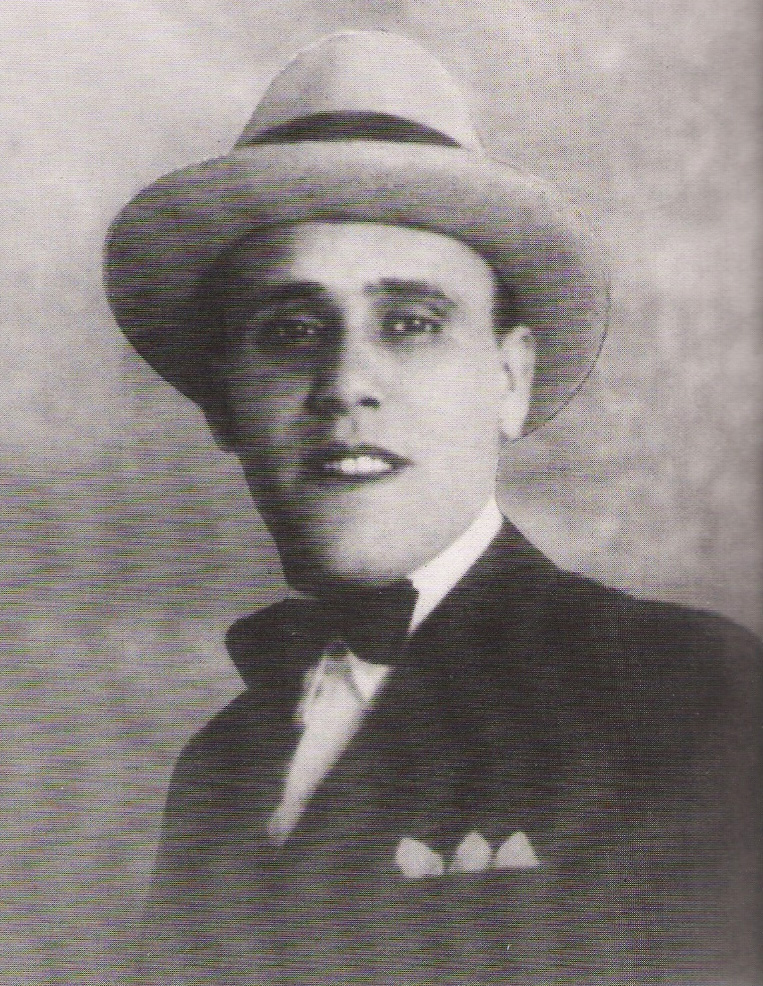
The architect of this history-making heist was sitting in a non-public workplace 1,000 miles away in Lisbon, the capital of Portugal. He was a bankrupt but formidable Portuguese businessman named Artur Virgílio Alves Reis. He was born in Lisbon in 1896, raised in borderline poverty as a result of his father’s poor investments. After graduating from secondary college, younger Alves Reis tried a course in engineering, however dropped out after only one yr. In 1916, shortly after Portugal joined the Allies within the Nice Warfare, 20-year-old Alves Reis and his new spouse Maria fled to the Portuguese colony of Angola on the west coast of Southern Africa.
Angola was not a really snug place to boost a household; it was a stupendous land of tropical seashores, glowing rivers, and Sub-Saharan desert, however the African territory was impoverished as a result of plunder and neglect by faraway overlords. The Portuguese had used the land as a slave colony as early because the 1500s, however when Alves Reis arrived in 1916, human trafficking was progressively being changed by exports of espresso, cotton, and tobacco.
Younger Alves Reis was good-looking, inventive, and impressive—and he might attraction the spines off an Angolan girdled lizard. When he discovered that Angola wanted certified engineers to assist construct its new agricultural infrastructure, he used a pal’s faculty diploma as a template to forge a bachelor’s diploma in his personal identify. Printed on positive bond paper, it acknowledged that he had graduated from Oxford College’s Polytechnic Faculty of Engineering, itemizing specialties in an enormous vary of disciplines, together with geology, physics, electrical engineering, civil engineering, and arithmetic. He adorned it with official-looking seals and cast signatures. He then carried the fabrication to the very pinnacle of legitimacy-lending establishments: The native notary. This explicit notary was not as rigorous as some, and Alves Reis appeared like an upstanding gentleman. So the general public official helpfully stamped and signed the doc, thereby certifying its authenticity—nevermind that Oxford College had no “Polytechnic Faculty of Engineering”.
With these manufactured credentials and his superhuman attraction, Alves Reis quickly secured a excessive rating place within the Angolan capital Luanda, overseeing plans for buildings and sewers for the Division of Public Works. This desk job proved reasonably tedious, so he used his mala fides to safe a further part-time job as a supervising engineer at a railroad restore store. He shortly earned the respect of his fellow railroad employees—in contrast to different supervisors, who stored their distance from the greasy and sooty railroad engines, he was prepared to get his fingers soiled within the railyard, climbing round to assist diagnose mechanical issues. Regardless of his lack of formal coaching, he demonstrated a stunning proficiency for troubleshooting the hulking machines.

Alves Reis additionally got here to be recognized for his grandiose demonstrations. On one event, he butted heads with railway inspectors after he ordered some fashionable steam engines from the U.S. These exceeded the protected weight capability of Angolan railway bridges, the inspectors warned. Missing any precise information to assist his rebuttal, Alves Reis challenged the inspectors’ assertion, and he invited the general public to look at as he boarded one among these American engines along with his spouse and new child son for a journey throughout Angola. Fortunately for him, not one of the bridges collapsed on this journey, and neither did his fame. In reality, he was quickly promoted to Performing Chief Engineer. On one other event, when a pal’s tobacco crop was failing as a result of drought, Alves Reis recognized a close-by river that may very well be used as a water supply, the one impediment being a considerable hill between the 2 websites. Alves Reis in some way persuaded round 50 locals to take up their picks and shovels to assist dig an irrigation canal straight by means of the hill. The water saved the crop, and Alves Reis was once more hailed a hero.
Alves Reis was knowledgeable success, however he discovered that public service and railroad work didn’t pay in addition to he had hoped. So he stop his official jobs to embark on a sequence of grift-oriented enterprise ventures. He put out ads for baggage product of jute, a robust fiber widespread amongst Angolans, however the luggage he delivered have been simply product of thick paper. He repaired and repainted some previous German tractors and bought them as model new. He bought complete harvests from farms all through Angola, then requested his previous pals within the rail enterprise to prioritize his shipments over his opponents’. These ethically various enterprises proved far more worthwhile than trustworthy work. By 1922, after the struggle was over, he was able to return to the comforts of Portugal along with his spouse, two younger sons, and a small fortune. The unit of foreign money in Portugal and Angola on the time was the escudo, and Alves Reis had amassed greater than 600,000 escudos (value roughly $500,000 adjusted for US {dollars} in 2022). In preparation for his return to Lisbon, he moved his funds to Portuguese banks. This retreat was well timed—inside the yr Portugal declared the Angolan escudo to be a separate foreign money managed by a separate central financial institution. Severed from the steadiness of the Financial institution of Portugal, Angola sunk into additional financial despair as its castaway foreign money went into hyperinflation.
Again in Portugal, flush with money, Alves Reis purchased a model new Nash car, moved right into a lavish 12-room condominium, and employed a employees of home servants. He began an organization with some enterprise companions, and his identify shortly rose in status in the neighborhood. In time, nevertheless, his costly tastes and unlucky investments depleted his capital reserves, and he grew to become determined for a brand new supply of revenue to keep up his way of life and fame. Trying to his former residence of Angola, Alves Reis found the plight of the trans-African railway firm Ambaca. The corporate was struggling its personal monetary misery—their share worth was down to a couple scant escudos, and collectors have been clamoring. Alves Reis discovered that Ambaca had simply obtained a mortgage of two million escudos from the Portuguese authorities (about $1.5 million USD adjusted). He would later write:
There was no time to lose. A daring stroke would settle all the pieces, however have been I to pay heed to my scruples I ought to inevitably fail. Within the materialistic world to which I belong, there are neither trustworthy males nor rogues—there are solely victors and vanquished.
Alves Reis calculated the variety of shares he would want to acquire to realize controlling curiosity in Ambaca: about 800,000 escudos’ value. So he began writing checks. He didn’t have the money reserves to cowl these checks, however he had one thing higher: a checking account at Nationwide Metropolis Financial institution in New York. A examine from a New York financial institution had a sure air of legitimacy, which was useful. Extra importantly, the bodily paper checks must be positioned on a ship in Lisbon and carried all the way in which throughout the ocean to New York Metropolis and delivered to a financial institution department earlier than any try can be made to truly draw the funds from the account. Within the meantime, Alves Reis used the checks to safe controlling shares of Ambaca, which gave him custody of the corporate account. He then despatched the required funds to his Nationwide Metropolis Checking account by wire switch, all whereas the paper checks have been nonetheless bobbing throughout the Atlantic.
Alves Reis subsequent used his ill-gotten slush fund to purchase up management of one other financially struggling enterprise: The South Angola Mining Firm. The corporate engineers had but to dig up something worthwhile in Angola, however Alves Reis felt that he might elevate the corporate’s inventory costs by leveraging his fame, and spreading false rumors of paydirt. He additionally hoped to attraction some rich financiers into investing within the firm to inflate its worth. This was how he got here to be launched to José Bandeira, a businessman who was fascinated by Angolan useful resource extraction.
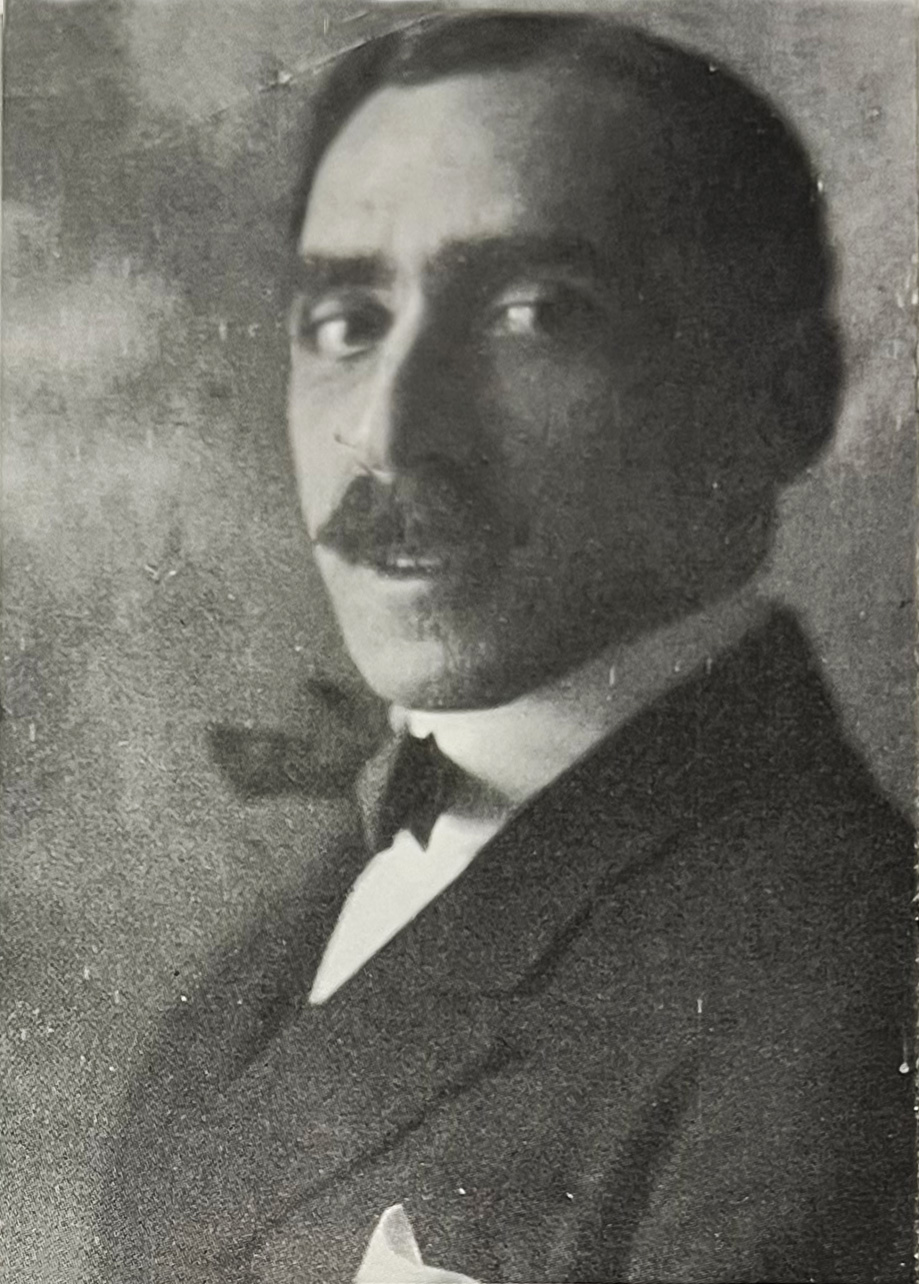
Bandeira was Portuguese by beginning, however resided in The Hague—an internationally essential metropolis within the Netherlands which was residence to the Everlasting Courtroom of Worldwide Justice (dissolved in 1946). Bandeira’s elbows commonly rubbed these of diplomats and industrialists. Bandeira’s personal brother Antonio was the Portuguese Minister to the Netherlands, a place of appreciable diplomatic privilege.
Whereas Bandeira was visiting Lisbon, Alves Reis sought him out and utilized a mix of affability, flattery, and flaunt. Alves Reis later wrote:
The subsequent morning I bumped into Bandeira ready for a road automotive. I gave him a carry in my chauffeured automotive. At my workplace Bandeira was so impressed he requested me to provide him possibility rights on the mining firm inventory and volunteered to introduce me to his pals if I ever went to Holland. As quickly as I spotted he had wonderful connections in The Hague I made a decision to make use of him, simply as we would use lemons: we squeeze them and discard them.
Alves Reis had designed a grand scheme that he hoped would supply a everlasting answer to his monetary difficulties. It was astonishingly formidable, and to have any probability he would require the help of males like Bandeira. To nurture this promising relationship, Alves Reis took Bandeira up on his invitation, and visited The Hague in Might 1924. Throughout this journey, Bandeira launched him to 2 colleagues: a Dutch dealer named Karel Marang, and a German dealer named Adolf Hennies, who additionally occurred to be a former gentleman-spy. Between them, that they had additional deep connections to diplomats and worldwide businessmen. These have been notably juicy lemons.
It turned out, nevertheless, that the squeezing must wait. Shortly after returning to Portugal, Alves Reis was arrested on prices of fraud and embezzlement. Whistleblowers on Ambaca’s board had discovered proof of his audacious check-kiting, and reported him to monetary authorities. Bandeira and Hennies, who had simply arrived in Lisbon, visited Alves Reis in jail. Regardless of his assured assurances that these accusations have been false, the 2 businessmen instantly returned to the Netherlands, relieved to have dodged a bullet.
Artur Alves Reis did loads of studying throughout his 54 days in jail. He flatly denied the fees in opposition to him, blaming his authorized hassle on obscure “political enemies.” When he went to trial on 27 August 1924, the decide threw out the embezzlement cost for causes misplaced to time, however upheld a cost of fraud for a single $5,000 uncleared examine. Alves Reis scraped collectively bail and compensation by arranging the sale of his automobiles and his spouse’s jewellery. As soon as repaid, the collectors agreed to not pursue legal prices. Alves Reis walked away a free, bankrupt man, simply in time to satisfy his third son, who had been born throughout his stint in jail. Native businessmen shocked Alves Reis with a dinner to rejoice his synthetic exoneration. Upon returning residence, the household started packing their belongings, making ready to maneuver to a a lot smaller condominium throughout city.
Inside weeks, columns started to appear in Lisbon newspapers describing a conspiracy of bankers and politicians that have been unjustly persecuting a revered native businessman—Artur Alves Reis. It turned out that these columns have been really sponsored content material, ads paid for by Alves Reis, cleverly designed to mix in with actual reporting. Alves Reis clipped and despatched these pages to Bandeira, Marang, and Hennies. At first they ignored him, reluctant to collaborate with somebody just lately accused of fraud. However when Alves Reis shared the sheer scale of the enterprise he was conducting, and alluded to the profitable contract he held from the Financial institution of Portugal itself, the businessmen adjusted their appetites for threat accordingly. Inspired by these exploratory squeezes, Alves Reis moved ahead with the primary stage of his plan.
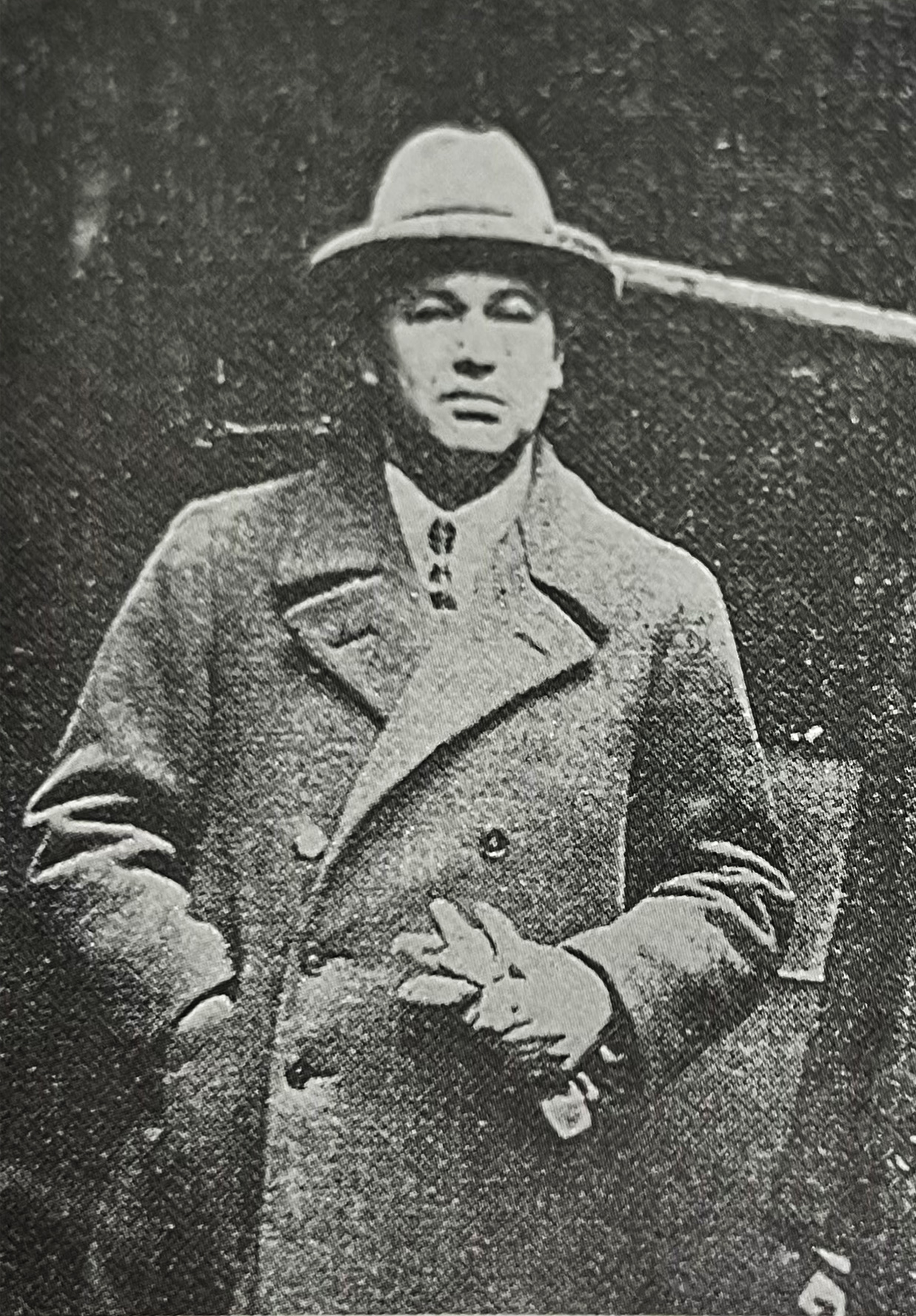
On a late autumn night in 1924, working from his small private workplace in Lisbon, 28-year-old Artur Alves Reis sat down at his desk, lit a cigarette, and rolled a sheet of papel sellado into his trusty L. C. Smith typewriter. Papel sellado, or “sealed paper,” was particular government-mandated stationery bearing the seal of Portugal. It was costly, however out there for buy at any licensed stationery retailer. It was required for contracts, wills, deeds, and related paperwork. Its buy worth was a manner for the federal government to tax authorized transactions, and any doc printed on it mechanically regarded very official. Alves Reis typed a four-page contract which claimed to be from the Financial institution of Portugal, authorizing a Dutch-Portuguese syndicate to rearrange for the printing of recent banknotes to stimulate Angola’s economic system. He had calculated that 200 million escudos (roughly $152 million USD adjusted) was the utmost quantity that may very well be slipped into the Portuguese economic system with out elevating regulatory eyebrows, in order that was exactly the quantity of escudos the contract permitted.
In what was changing into his signature transfer, Alves Reis carried these typed pages to the one place that might elevate it from a sheaf of boring papers right into a Licensed Doc: the native notary. Provided that Alves Reis was a widely known and revered member of the enterprise neighborhood, mixed with Alves Reis’s uncanny capability to place folks relaxed, the notary’s assistant didn’t hassle to even learn the papers. He simply stamped and signed the contract’s cowl web page, accepted the payment, and Alves Reis was on his manner. His subsequent cease was the British Consulate. He had discovered that the majority overseas consulates supply a service the place they’ll confirm {that a} notarization is from a licensed notary. This service was fairly uninterested within the precise content material of the notarized doc, it merely verified that the notarization itself was from a licensed skilled. The notarization Alves Reis introduced was certainly official, so the consulate clerk graced the quilt web page with the stately British Consulate stamp. This course of was repeated on the German and French consulates.
Regardless of his monetary difficulties, Alves Reis did retain a couple of staff—amongst them a loyal workplace supervisor named Fransisco Ferreira. When Alves Reis was completed along with his stamp gathering, he assigned Ferreira the duty of retyping the contract in Portuguese and French aspect by aspect, once more on papel sellado. Ferreira was a a lot tidier typist, and he had higher mastery of French. He was unaware that the doc was fraudulent, and he was excited to be a part of such an essential secret operation. As soon as Ferreira completed his typing and left for the night, Alves Reis indifferent the notarized cowl web page from the unique contract and connected it to the brand new one. He added a specimens web page with crisp 500 and 1000 escudo notes connected. Subsequent, Alves Reis set upon his desk a pantograph, a tool which may duplicate and rescale the motions of a pen, often used for making enlarged copies of mechanical drawings. Below one arm of the machine he positioned the contract, and underneath the opposite he positioned a 500-escudo banknote. He rigorously traced the signature printed on the banknote—that of Inocêncio Camacho Rodrigues, the governor of the Financial institution of Portugal—and the pantograph made an enlarged copy on the signing line of the contract. He then rebound the entire paper packet with needle and thread, and sealed the binding with molten wax. He possessed a hoop which featured an embossed Portuguese coat of arms, and he used this to make an official-looking impression within the wax earlier than it hardened. The ensuing doc—on notarized, sealed stationery and spangled with consular stamps—regarded very official, worldwide, and no-nonsense.
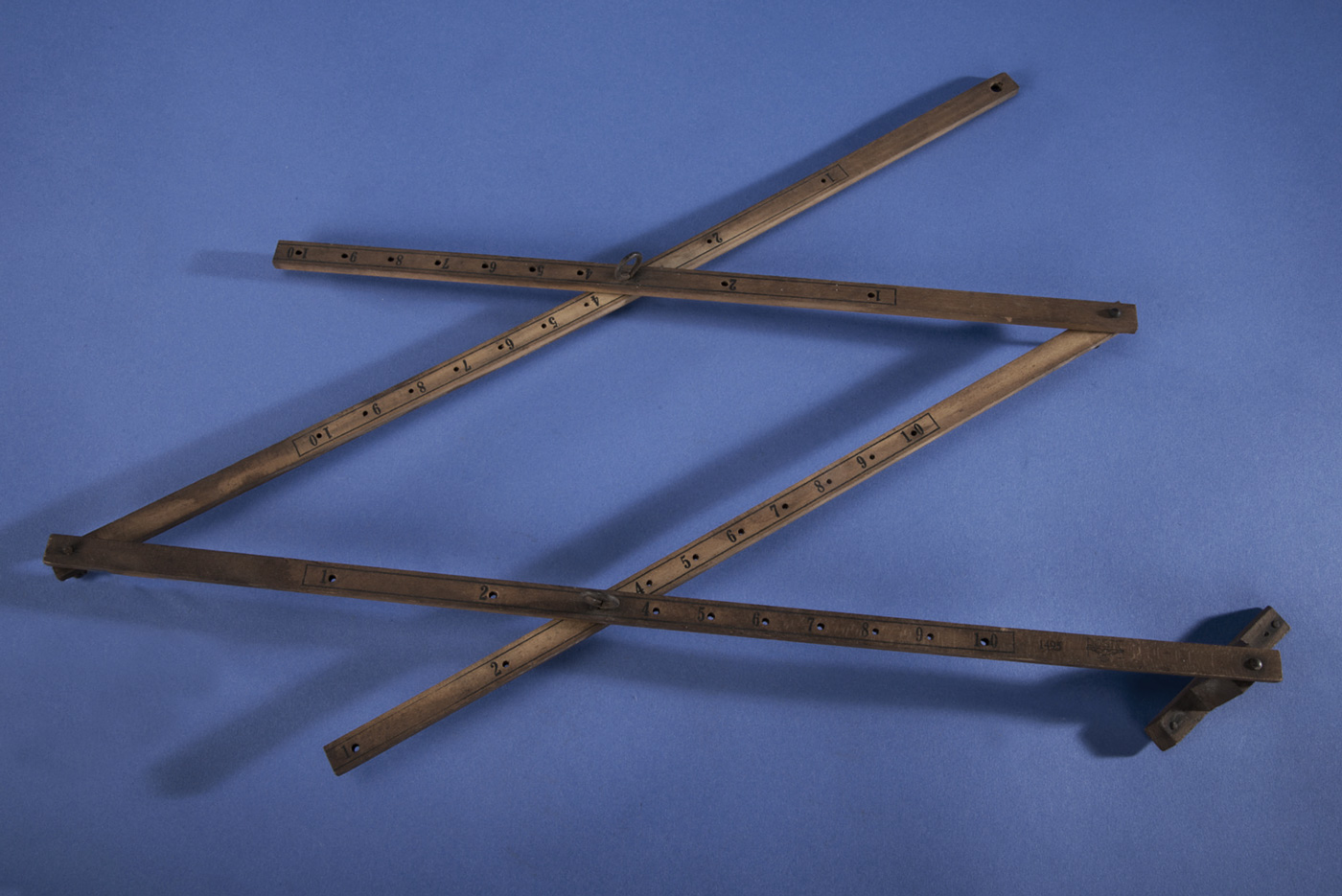
Alves Reis confirmed the contract to every of his recruits, and defined that he had been entrusted by the administrators of the Financial institution of Portugal to help on this secret mission to financially rescue Angola. Alves Reis’s position was to establish an acceptable banknote printing company, and confidentially prepare for a big amount of recent banknotes to be printed. Alves Reis and associates would then use this feast of money to spend money on the economic system of Angola behind the scenes. The administrators of the Financial institution of Portugal insisted on the strictest secrecy, Alves Reis defined—the Portuguese public can be outraged in the event that they discovered that their central financial institution was inflating the nationwide foreign money to help Angola. All communication with the financial institution should undergo Alves Reis personally, he mentioned. If this enterprise have been ever to be revealed, the financial institution administrators would disavow any data of it, and the entire thing would fall to items—everybody would lose. These types of clandestine machinations occurred the entire time, Alves Reis assured them, and if issues labored out nicely, there have been even larger plans.
Bandeira, Marang, and Hennies weren’t but clear on what their roles can be, however with that a lot money transferring round, it was clear that the handlers have been going to be handsomely rewarded. Within the meantime, the enterprise would want funding till the primary new banknotes have been delivered. Marang, presumed to be the wealthiest amongst them, agreed to cowl prices till he may very well be reimbursed. In the meantime, Bandeira persuaded his minister brother to supply a diplomatic move that might enable the boys to cross worldwide borders with minimal hassle. Simple peasy, lemon squeezy.
Till the early 1900s, the Financial institution of Portugal printed its personal banknotes. However throughout World Warfare I, there have been shortages of elements for the printing machines. A very persnickety a part of the printing press was the mechanical serial numbering system. Every banknote was imprinted with a singular serial quantity, and the sequential printers had plenty of small transferring elements and potential factors of failure. When the Financial institution of Portugal’s sequential machines broke down in the course of the struggle, officers discovered it not possible to seek out replacements. It turned out that the big engraving corporations of the world held many of the patents for these machines, and so they weren’t fascinated by manufacturing them on the market. There was extra money in, nicely, printing cash. Promoting notes to central banks supplied an ongoing income reasonably than a one-time {hardware} sale. Finally the Financial institution of Portugal tossed out its personal damaged printing machines, and outsourced banknote manufacturing to numerous worldwide corporations.
Alves Reis assigned the Dutchman Karel Marang and the German Adolf Hennies to discover a banknote printer. The 2 males had accomplished some enterprise collectively throughout and after the struggle, however this contract was essentially the most profitable alternative that they had encountered by far. Privately between them they questioned whether or not the doc was official—in spite of everything, Alves Reis had been jailed on suspicion of fraud. Then again, he appeared to be nicely linked and revered. It was attainable that the financial institution had chosen him for this shadowy work as a result of of his flirtation with fraud reasonably than despite it. Maybe the financial institution governors wanted somebody prepared to interact in a little bit illicit financial maneuvering. In the end Marang and Hennies determined that the most effective plan of action was to take the contract to a possible printer—if a significant engraving agency accepted the contract, it have to be official.
For his or her first try, on 03 December 1924, Marang visited an organization known as Enschedé, the printing agency answerable for the banknotes of the Netherlands. Within the engraver’s giant museum in Haarlem, surrounded by greater than 200 years of positive printing specimens and replicas of well-known work, Marang met with an organization consultant to clarify the syndicate’s mission. The consultant examined the specimens web page, and politely defined that his firm couldn’t reproduce the work of one other agency, this was an unprinted rule within the occupation. However he occurred to know of an esteemed engraving agency that had beforehand printed banknotes for Portugal: Waterlow & Sons Restricted of London. The consultant instructed Marang that he can be all too comfortable to write down a letter of introduction.
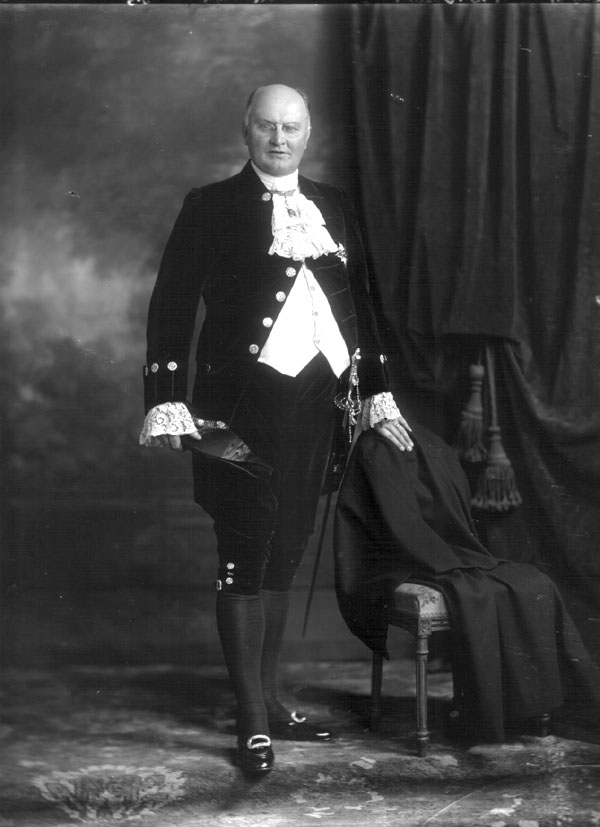
Marang arrived at Waterlow & Sons on Nice Winchester Road the next day, letter in hand. The constructing was plain, however the agency was distinguished; Waterlow & Sons had been doing enterprise for greater than a century. Based in 1810, the corporate was a significant worldwide engraver of foreign money, postage stamps, and inventory and bond certificates. In Sir William’s giant workplace, Marang defined that he was representing a Dutch-Portuguese partnership established to enhance the Angolan economic system. The plight of Angola was broadly recognized, the scenario was sufficiently determined to be worldwide information. The colony’s foreign money had hyperinflated to basically worthlessness, the colonial authorities was bankrupt, and its infrastructure was crumbling.
Sir William was sympathetic to the trigger, and happy to have a brand new enterprise deal. However when he flipped to the specimens web page of the contract, his expression darkened. He knew the agency that had printed the connected banknotes; it was one among his principal opponents. He handed again the contract and knowledgeable Marang that his agency wouldn’t be capable to print these banknotes. Not these actual banknotes, that’s. Waterlow & Sons had printed 500-escudo notes up to now, he defined, however they have been from the “explorer” sequence, a design that includes Portuguese explorer Vasco da Gama. The observe within the contract was from a “poet” sequence honoring well-known Portuguese poets. Sir William summoned an explorer specimen, and Marang inspected it with approval. The excellent news was that this Vasco da Gama design was nonetheless in circulation, so it was trivial to alter the contract to the alternate banknote. The dangerous information was that Waterlow’s had by no means printed any 1,000-escudo notes for Portugal, in order that they lacked the plates to meet that a part of the contract. However that was one thing they may type out sooner or later. The contract allowed for as much as 200,000 notes of the five hundred denomination—100 million escudos. That may make for a positive begin.
So far as Sir William was conscious, the contract was on the up-and-up. The corporate solicitor famous a couple of minor points, resembling unconventional web page ordering, however nothing to invalidate the doc. The agency’s consultant in Lisbon, a person named Romer, despatched telegrams expressing strenuous doubts concerning the contract’s legitimacy, however he was ordered to silence his protests. It was an uncommon contract, after all, however these have been uncommon circumstances. Sir William had despatched for a background examine on Karel Marang, and the report was impeccable. And the letter of introduction from their colleagues at Enschedé was reassuring. Nonetheless, it was at all times prudent to be cautious. Sir William defined to Marang that he would want a letter of authorization personally signed by Camacho Rodrigues, the governor of the Financial institution of Portugal. This, Marang assured him, wouldn’t be an issue.
With a view to fulfill Sir William’s request, Alves Reis made his option to a small, impartial print store in Lisbon. He questioned the shopkeeper at size about an costly, hypothetical print order he was planning to deliver to the institution. The shopkeeper answered fortunately, wanting to safe the profitable enterprise with this affable gentleman. In parting, Alves Reis talked about that he had simply returned from Paris, and he had forgotten to choose up positive French-made stationery for his pal Camacho Rodrigues of the Financial institution of Portugal. The shopkeeper, inclined to please his future valued shopper, agreed to fill the order for him. Alves Reis thanked him, and cautioned the printer to retailer the stationery securely—they wouldn’t need it falling into the incorrect fingers.
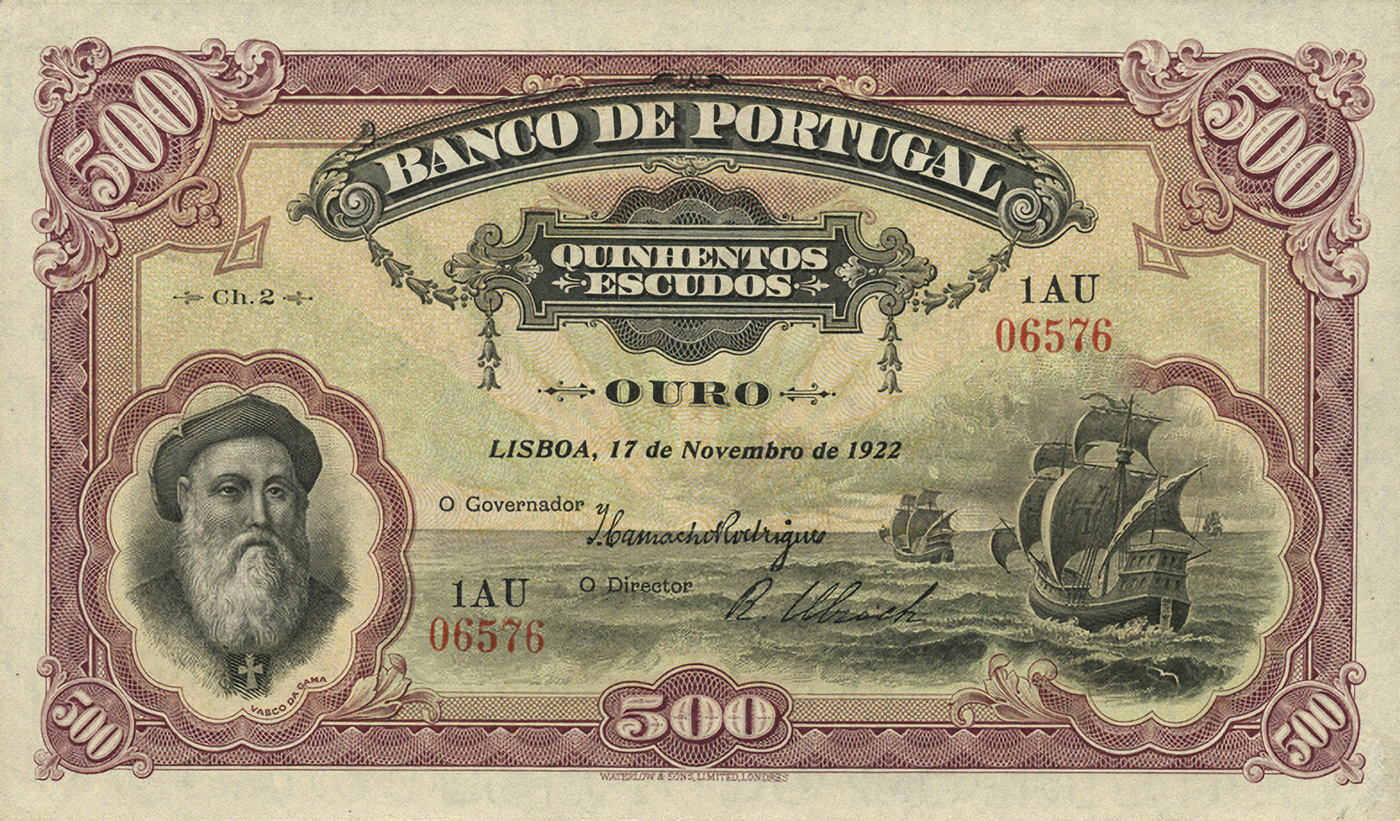
Armed with convincing letterhead and envelopes, Alves Reis typed a letter within the governor’s identify assuring Sir William that the contract Marang carried was official. It praised Sir William for his warning relating to such a fragile matter, and instructed him to route all future communications with the financial institution by means of Marang and associates. He completed it off with the pantograph.
A couple of week later, Marang hand-delivered Alves Reis’s newest forgery to Sir William. Waterlow & Sons started preparations for printing. Regardless of their settlement for all communication on this matter to undergo Marang, Sir William determined to make one closing verification that the contract was official. He despatched Camacho Rodrigues a discreet letter by way of the common mail:
I’ve the pleasure in acknowledging receipt of your confidential letter of twenty third December, the contents of which I’ve famous, and for which I’m obliged.
Yours faithfully,
William A. Waterlow
Chairman of Waterlow & Sons Restricted
Sir William’s secretary put the letter within the outgoing mail, and retained a duplicate within the official correspondence file. If Camacho Rodrigues had certainly written the letter authorizing the contract, Sir William anticipated no reply. But when he was not the creator of the letter, this cryptic message from Waterlow & Sons will surely elevate alarm on the Financial institution of Portugal, and the financial institution officers would transfer to intervene. Sir William by no means did obtain a reply to this letter, although not for the rationale he assumed—it was as a result of the letter in some way by no means reached Camacho Rodrigues.
On 10 February 1925, Karel Marang sat in his luxurious room on the London Ritz Resort, ready for his supply to reach. He had stretched his funds skinny on this enterprise, together with tens of hundreds of escudos going to Alves Reis for imaginary bribes to financial institution administrators. However now the enterprise had nearly reached fruition, and Marang regarded ahead to an enormous return on his funding, in addition to the satisfaction of doing a little good for Angola. There was a knock on the door, and Marang opened it to greet the bellman. The bellman wheeled in a cart weighed down with an outsized leather-based valise concerning the measurement of a treasure chest, weighing roughly 100 lbs (45 kg). Unbeknownst to the bellman, the valise contained 20,000 freshly printed banknotes—10 million escudos in worth (roughly $7.6 million adjusted). And this was a mere fraction of the entire order; the remainder can be prepared in two weeks’ time. Paying for your entire print run had value 1,500 kilos sterling (equal to about $120,000 USD in 2022). For the syndicate, this might be a return on funding of over 6,000 p.c. Historical past didn’t report whether or not Marang tipped the bellman.
The subsequent day, Marang returned to his residence in The Hague, the outsized valise strapped in brightly coloured diplomatic service stickers that had shielded it from customs inspection. He was quickly joined by Alves Reis, Bandeira, and Hennies. The neat bundles of payments nonetheless smelled of recent ink. The 4 males wrote up a really quick contract stipulating that the “earnings” can be break up evenly as they got here in, 25 p.c per man, after reimbursements. Marang, Bandeira, and Hennies didn’t intently look at this rickety fiction.
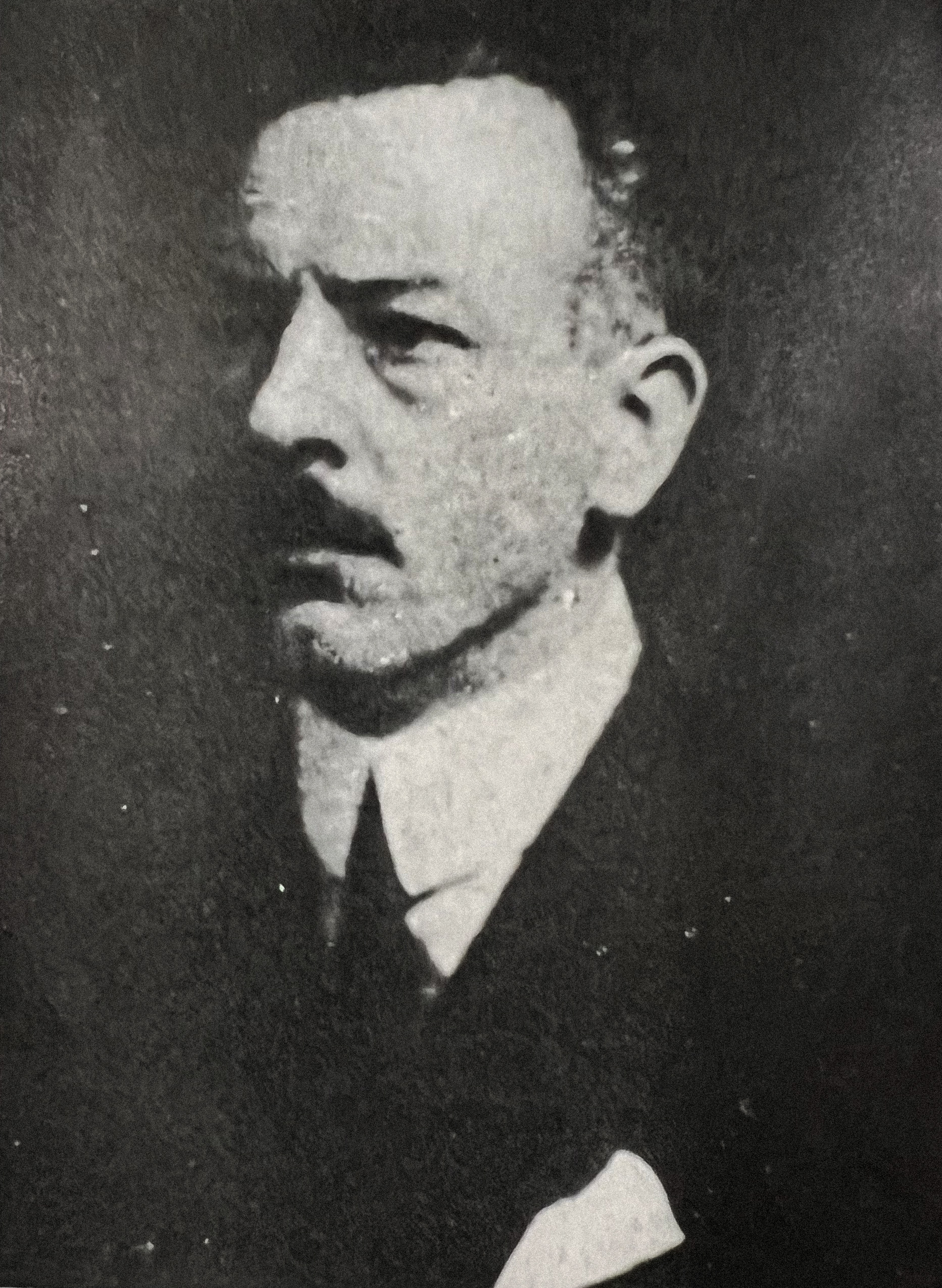
Though Marang and Bandeira might have believed that this venture was official, it’s fairly possible that Hennies didn’t. His coaching as a spy made him unusually cautious of strangers’ tales. And he already had a historical past of taking part in banknote capers. In 1923, he had discovered that Germany was quietly planning to switch the nationwide paper foreign money with a brand new one to battle hyperinflation, and he knew the place a big cache of the soon-to-be out of date foreign money was saved. With assist from insiders who shared within the earnings, Hennies took a portion of the previous banknotes to worldwide foreign money exchanges to transform it into British kilos and Swiss francs simply earlier than information of the brand new foreign money grew to become widespread data. That scheme had been profitable, leading to a good bonus, however this new venture promised a fortune.
Earlier than Alves Reis might start distributing the money to himself and his accomplices, it wanted to be sanitized—bankers tended to be suspicious of enormous portions of sequential payments that also had that new banknote scent. To this finish, Alves Reis traveled to Porto, a metropolis the place it was customary for banks to show a blind eye, particularly for sure sorts of laundry service. With the help of his workplace supervisor Ferreira, Alves Reis employed a lot of “drones” within the metropolis, and gave every man a stack of escudos. Their job was to go to numerous banks and make loads of reasonable-looking deposits. Alternatively, they may take the money to overseas foreign money exchanges and commerce it for kilos, francs, or {dollars}. Drones would get to maintain 2 p.c of the entire money they moved. Alves Reis would later switch the deposited funds to his accounts in large metropolis banks, and withdraw it there, and thus his wealth was disassociated from the suspiciously crisp escudos. Because the laundered money flowed in, Alves Reis paid his three other-way-looking accomplices beneficiant funds towards their “fee,” encouraging them to take a position a number of the spoils in Angolan companies (particularly the South Angola Mining Firm). In the meantime, new valises filled with recent money periodically arrived from Waterlow & Sons.
On one event, a very sloppy drone deposited a considerable amount of his escudos in a single transaction, inflicting a sharp-eyed financial institution supervisor to look into the depositor’s background. The person, it turned out, had a previous arrest for embezzlement. Suspecting a counterfeiting operation, the financial institution supervisor despatched two pattern payments to the Financial institution of Portugal for inspection. The central financial institution returned the payments, certifying them as official banknotes printed by a licensed engraver, no trigger for concern.
On one other event, whereas Alves Reis and Hennies have been escorting a banknote cargo from London, a cantankerous customs official in Lisbon determined that he wouldn’t respect the diplomatic seals, and instructed Alves Reis that his brokers can be opening the outsized valise for inspection. If customs brokers have been to see the uncooked money inside, they will surely contact authorities, and the jig can be decidedly up. Hennies was gravely involved, however Alves Reis waved dismissively on the customs agent, and took Hennies out for a positive dinner—quietly conscious that it is perhaps their final meal as free males. They returned to the customs counter the next day. The case remained sealed. There had been a shift change, and the incoming supervisor was much less inclined to agitate diplomats.
By March 1925, the Alves Reis syndicate had obtained the entire banknotes from Waterlow & Sons—100 million escudos. The drones continued dispersing the money into banks day after day, however by Alves Reis’s estimation, laundering the 200,000 bodily banknotes was going to take months, and even years. In the meantime, rumors of counterfeit 500-escudo banknotes had begun to flow into, a lot in order that the Financial institution of Portugal inspected much more of the suspect payments, and posted notices in native newspapers reassuring the general public that the payments had been examined and licensed. Nonetheless, companies in Porto have been changing into cautious of accepting 500-escudo notes. Alves Reis additionally found that he had made some errors when he instructed the printer the way to quantity the banknotes, so some had serial numbers that ought to not exist and have been subsequently too dangerous to deposit. Feeling the squeeze, Alves Reis determined to provoke the subsequent stage of his secret scheme. He despatched a telegram to Marang, Bandeira, and Hennies:
MOST IMPORTANT MEET CLARIDGE PARIS APRIL 29
On the indicated day, the three males checked into their rooms on the Claridge Resort in Paris, having no thought what sort of information to anticipate. They gathered in Alves Reis’s expansive luxurious suite whereas wives and girlfriends went procuring (they tended to remain out of their important others’ enterprise dealings, which was the type on the time). It was right here that Alves Reis revealed the true scale of his intentions: Within the coming months, the gents on this room have been going to pool their fortunes, file the requisite paperwork, and set up and govern a completely new financial institution: The Financial institution of Angola & Metropole—”A&M Financial institution” for brief.
Alves Reis’s grand revelation was met with blinking confusion. Founding a brand new financial institution was a rare endeavor that might invite authorities scrutiny; what would they’ve to realize?
The foremost profit, Alves Reis defined, was to simplify the duty of processing the Waterlow banknotes. He defined that Governor Rodrigues himself had really helpful this plan of action (the boys nonetheless spoke amongst themselves as if their enterprise was official, regardless of crushing proof on the contrary). Fairly than depositing small quantities of money into plenty of banks, they might deposit all of it into their very personal financial institution because the foundational capital. This might save them on foreign money trade charges, and the fee that they had been paying the drones. It was fairly a thrifty proposition. It went with out saying that working an actual, precise financial institution may very well be extraordinarily worthwhile for all of them. Alves Reis’s zesty underlings have been starting to heat to this audacious plan.
He paused for a couple of silent moments, then let fall the opposite footwear: As soon as A&M Financial institution was in enterprise, they might use their appreciable capital to quietly purchase shares within the Financial institution of Portugal till that they had sufficient to change into the bulk shareholders, thereby taking management of the nation’s central financial institution. Eyes have been agape and jaws have been ajar.
It turned out that the majority of Alves Reis’s studying throughout his 54 days in jail nearly a yr earlier had been from the bylaws and rules of the Financial institution of Portugal. Regardless of being the nation’s central financial institution, it was a privately owned establishment. The Portuguese authorities owned a small portion of the shares, and the remainder have been in personal fingers. This type of association was commonplace across the flip of the twentieth century, however nobody had ever tried to conduct a hostile takeover of a non-public central financial institution earlier than. It was such a novel concept that there was no physique of regulation to deal with it, which means that it was technically authorized (fraudulent foundational funds however).
As a comforting fiction for his accomplices, Alves Reis claimed that Camacho Rodrigues and his vice governor Mota Gomes have been secretly supportive of this plan. They needed the ability to dislodge some problematic administrators, he mentioned. Alves Reis didn’t point out his different main motivation: to defend himself from prosecution if his fraudulent contract with Waterlow have been ever found. In keeping with the bylaws of the Financial institution of Portugal, the one entity that would take authorized motion in opposition to counterfeiters was the Financial institution of Portugal. As soon as Alves Reis managed the financial institution, he would merely decline to press prices in opposition to himself if the problem was ever raised.
The temper within the room shifted from flabbergasted to exhilarated. If this plan labored, it will put them in positions of large energy and significance, whereas concurrently making all of them fabulously rich. Even Adolf Hennies, ordinarily fairly circumspect, was compelled to declare that Artur Alves Reis was “one of many nice monetary geniuses of the age!” For his or her first transfer, Alves Reis assigned José Bandeira with the duty of quietly shopping for up Financial institution of Portugal shares by means of intermediaries.
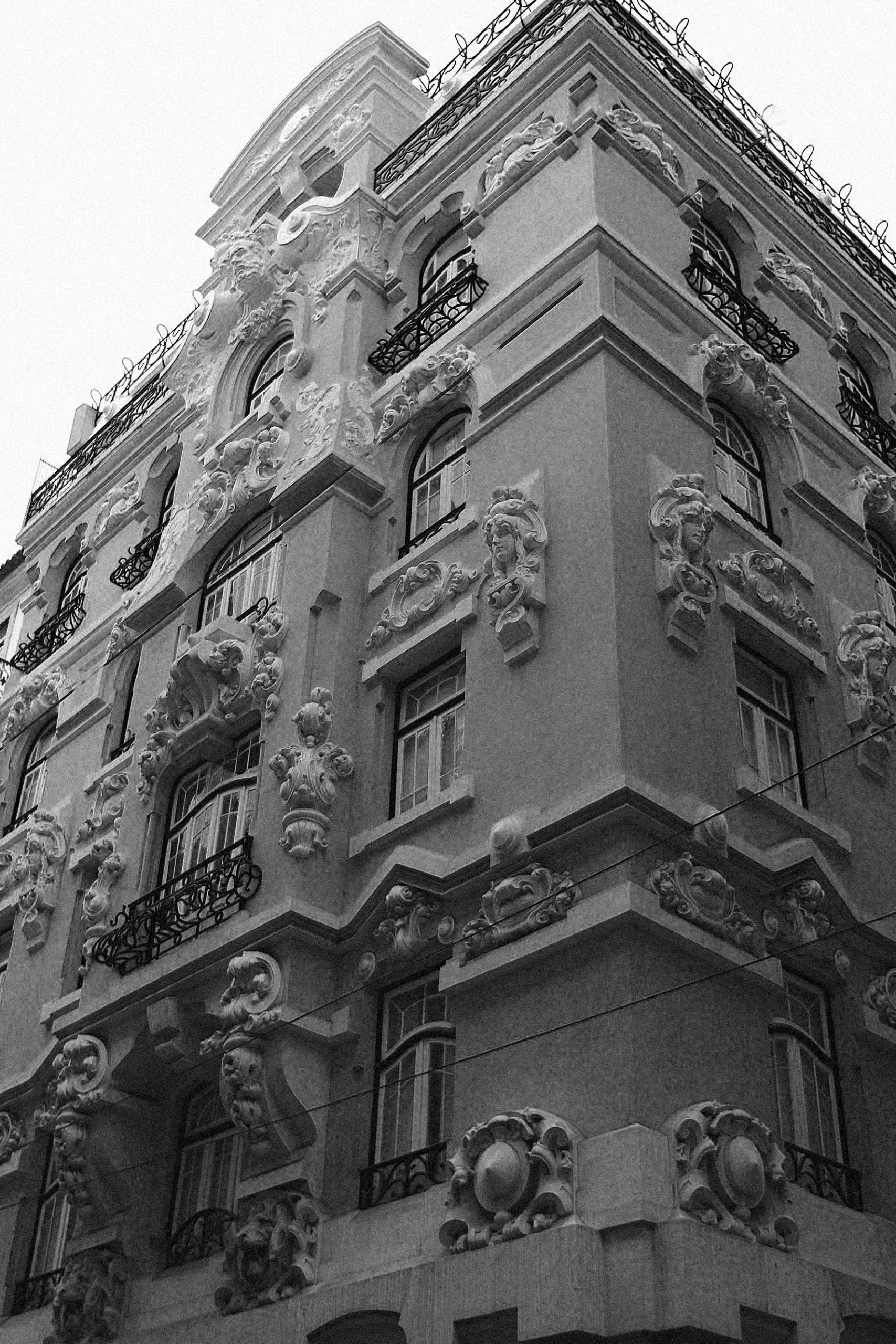
On 27 June 1925, simply two months after the assembly on the Claridge, the entire paperwork had been filed, the required 20 million escudos had been produced, and A&M Financial institution was formally granted a constitution by the Portuguese Banking Council. In anticipation, Alves Reis had bought a constructing in Lisbon’s enterprise district to deal with the primary department. His personal residence had additionally been significantly upgraded—a four-story mansion maintained by six servants. To maintain his spouse from asking too many questions, Alves Reis showered her with modern clothes, jewellery, and different luxuries.
A month after his financial institution opened, Alves Reis created a brand new forgery: one other letter to Waterlow & Sons from Comacho Rodrigues, this one authorizing the printing of 380,000 extra banknotes. Marang hand-delivered the work order to Sir William, together with a separate order for hundreds of inventory certificates for A&M Financial institution. In the meantime José Bandeira had been busy shopping for slices of the Financial institution of Portugal, and the syndicate now owned 4,600 shares—greater than 10 p.c of the 45,000 they required.
By September, A&M Financial institution was conducting official enterprise, resembling moneylending, investments, and foreign money trade. New branches of A&M Financial institution have been opening in key cities all through Angola. Newspapers started to reward Alves Reis for his generously low rates of interest for companies within the colony—clearly he was gaining foreign money. Alves Reis’s long-time workplace supervisor Ferreira—now on the financial institution’s board of administrators—joined Bandeira within the secret effort to collect up shares of the central financial institution. By mid-September, that they had bought greater than 7,000. Alves Reis, Bandeira, Marang, and Hennies have been all wealthier than that they had ever been earlier than, and the brand new escudos from Waterlow & Sons have been arriving by the valise-load. It appeared that Alves Reis had taken the previous idiom about life and lemons to coronary heart.
The primary signal of issues turning bitter appeared in November 1925. Alves Reis and Hennies have been on a go to to Angola to discover funding alternatives when one among Alves Reis’s previous pals there, a person who labored for the police, discreetly knowledgeable him that his tour group was underneath surveillance. Later that month, an article appeared within the Portuguese newspaper O Século criticizing an unnamed financial institution, calling into query the pedigrees of its founders and the supply of its capital, whereas accusing the “thriller financial institution” of compiling shares of the Financial institution of Portugal. Within the following days, different newspapers printed related tales, and shortly O Século felt assured sufficient to call the item of their criticism:
The infamous Financial institution of Angola & Metropole has begun its maneuvering. The place does it get its cash from? […] Not one of the individuals within the new group is understood within the monetary world. […] Names are being talked about and all the pieces makes us imagine that Portugal has fallen prey to a gang that’s on the brink of devour the nation’s coronary heart.
This flurry of unfavourable consideration satisfied the Portuguese Minister of Finance to make public their ongoing investigation. He despatched brokers to go to A&M Financial institution and assessment its inner information for irregularities.
On 25 November 1925, a reporter for the newspaper Impresna Nova got here to the financial institution’s principal department and visited Ferreira’s workplace. He had an ultimatum: Impresna Nova was planning its personal unfavourable articles about A&M Financial institution, however for a mere 50,000 escudos ($38,000 in fashionable cash), the paper might simply neglect the entire thing. Luis Viegas, the Inspector of Banking Commerce, simply occurred to be in an adjoining room inspecting banking commerce, and he overheard the trade. He stepped into the room and arrested the reporter on prices of extortion. The information of this arrest undermined the media’s credibility within the public eye, and the newspapers quickly misplaced their urge for food for criticizing A&M Financial institution. In the meantime, Bandeira despatched phrase that he and Ferreira now held 31,000 shares of the Financial institution of Portugal, over two thirds of what they wanted.
Regardless of the media’s waning curiosity, the federal government was nonetheless suspicious of Alves Reis and associates. There was a bookkeeper’s workplace in Porto serviced by A&M Financial institution, and an worker there felt sure that the payments from the financial institution have been counterfeit. The worker knowledgeable the Financial institution of Portugal, and on 05 December 1925, police and banking officers surrounded the Porto A&M department. They arrested the department supervisor, the bookkeeper, and the proprietor of a neighboring enterprise that additionally took cash from A&M Financial institution. The police seized the entire money for inspection. The central financial institution’s on-site counterfeit skilled laid out his examination instruments and scrutinized a number of notes. No, he lastly concluded, these aren’t counterfeits. “It’s completely not possible to engrave a cast plate with the identical perfection and evenness,” he mentioned. The printing was flawless, they have been product of the right paper, and the watermarks have been appropriate. Not even the mighty Financial institution of Portugal might make banknotes this good, which is why they employed outdoors corporations to print their foreign money within the first place. The skilled was completely sure that these payments have been printed by a government-authorized agency.
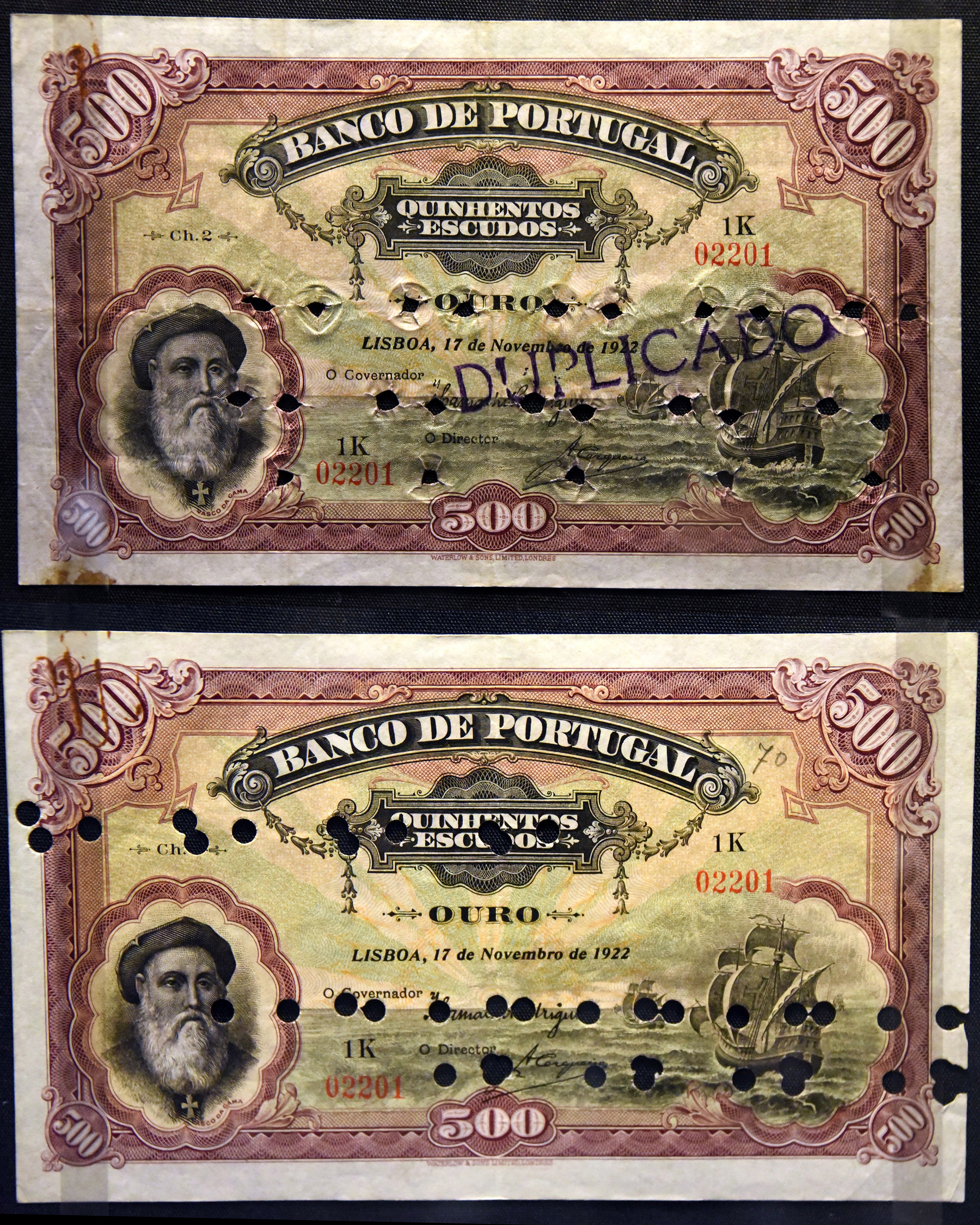
Having arrested three males and upturned three locations of enterprise, all with no warrant or bodily proof, the officers from the Financial institution of Portugal have been understandably mortified. To stall for time, they instructed the investigators to type the entire money by serial quantity, underneath the shaky pretext that this might put together the payments for a extra strong examination. Whereas sorting the payments, two banknotes with similar serial numbers have been discovered, one thing which shouldn’t be attainable. A buyer will need to have introduced in a official invoice that occurred to overlap the serial numbers Alves Reis had specified for his personal print run. A number of different duplications have been later found, and in every case it was not possible to inform which banknote was actual and which was cast. However the mere undeniable fact that duplication existed was damning proof.
The next day, information of the raid reached Alves Reis and Hennies as they stood on the deck of a transport ship approaching the docks of Lisbon, coming back from their journey to Angola. Alves Reis later wrote:
Immediately a speedboat got here alongside and I heard my identify known as out. Some pals had come to warn me—that handcuffs awaited me in Lisbon. They instructed I flee.
Adolf Hennies—whose expertise as a spy had left him with a great instinct for hassle—acknowledged the gravity of this state of affairs. He suggested Alves Reis to go overseas reasonably than go ashore. The pilot boat can be right here quickly, and so they might slip aboard it to keep away from the police on the pier. Alves Reis declined, assured he might disentangle himself from this newest inconvenience. “I haven’t dedicated any crime,” Alves Reis mentioned to the one particular person on the planet who knew precisely which monumental crimes he had dedicated. After repeatedly failing to persuade his cussed pal to evade seize, Hennies gave up and got down to discover the ship’s captain. Out of previous spycraft behavior, Hennies had befriended the person, and now he would use this connection to switch to the pilot boat. He didn’t have to fret about leaving his financial institution accounts behind to be seized—he had lengthy since transferred most of his wealth to German banks.
Shortly after his transport docked in Lisbon, twenty-nine-year-old Artur Alves Reis, one of many wealthiest males in Portugal, was arrested. Hennies noticed the arrest from a close-by cafe patio. The transport captain had promised to attend for his return earlier than departing. At his earliest alternative, the previous spy would take passage again to his homeland, the place, because the Germans would say, he would crawl right into a Schlupfwinkel for the length. It turned out that ‘Adolf Hennies’ was not even his actual identify, and when he returned to Germany he would scurry again to his earlier identification like a sentimental hermit crab.
On 07 December 1925, the Financial institution of Portugal introduced that each one 500-escudo notes within the “Vasco da Gama” sequence have been to be faraway from circulation. The streets of Lisbon and Porto grew to become jammed with residents lining up at banks to trade foreign money. As soon as discontinued these payments can be value their weight in paper, so residents have been urged to trade them as quickly as attainable. Anybody turning in additional than 20 payments at a time would want to point out correct identification, and the transaction can be documented.
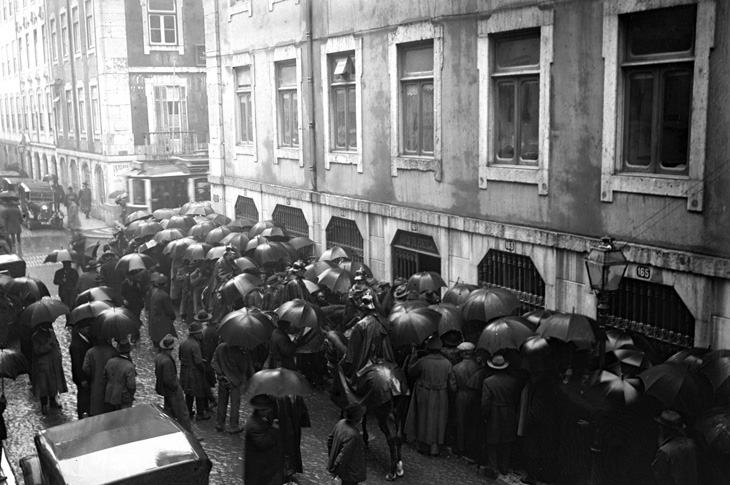
Behind the scenes, regardless of the understanding that fraud was afoot, and lots of indications that A&M Financial institution was concerned, officers might solely guess at how these excellent banknotes have been being produced. Have been these the product of meddlesome German printing corporations? Was Communist Russia making an attempt to destabilize the capitalist world? Or might or not it’s a corrupt plot from contained in the Financial institution of Portugal itself?
Below the circumstances, it was solely pure for a Portuguese official to go to the unique printer for the Vasco da Gama sequence, Waterlow & Sons Restricted in London. Escorted by Scotland Yard inspectors, an agent from the Portuguese embassy confronted Sir William in his Nice Winchester Road workplace. Sir William cooperated absolutely, handing over all related paperwork and retelling his model of the occasions. Below the 2 fraudulent contracts, Waterlow & Sons had printed and handed over 580,000 banknotes, with a complete face worth of 290 million escudos ($220 million USD in 2022).
Whereas the investigation was underway, Alves Reis was having fun with an expensive incarceration. Ever the charismatic confidence man, he had satisfied the chief investigator that he was harmless, and that the 2 of them should work collectively to combat the corrupt Financial institution of Portugal. The chief investigator organized to switch him to a cushty, well-appointed area, and commenced referring to Alves Reis as “your excellency” (roughly analogous to calling somebody “sir” in America). Alves Reis was granted a non-public suite, positive furnishings, unrestricted guests, and free communication with the skin world, together with with fellow suspects Bandeira and Ferreira. He overtly arrange a forging station in his workplace which he used to craft a menagerie of incriminating paperwork—receipts, correspondence, and so forth.—implicating the administrators of the Financial institution of Portugal. This freedom and unfettered forgery continued till the chief investigator was pressured into resigning after he tried to personally arrest two Financial institution of Portugal administrators. Police moved Alves Reis to a extra typical cell for the remaining detainment.
The forgeries Alves Reis had created have been sufficiently convincing that his trial was delayed for years whereas investigators assessed their authenticity. In the meantime, Alves Reis refused to talk to investigators—till he was knowledgeable that his spouse had been arrested, and that she was languishing in a grimy cell. Upon studying this, he spat curses at his captors, till he lastly broke down sobbing and admitted to all the pieces. Throughout the hour, he recanted his confession. He wrote a brief e book accusing Financial institution of Portugal officers of engineering the entire misadventure. He tried suicide with a hidden capsule of poison, which triggered a short coma and everlasting partial blindness.
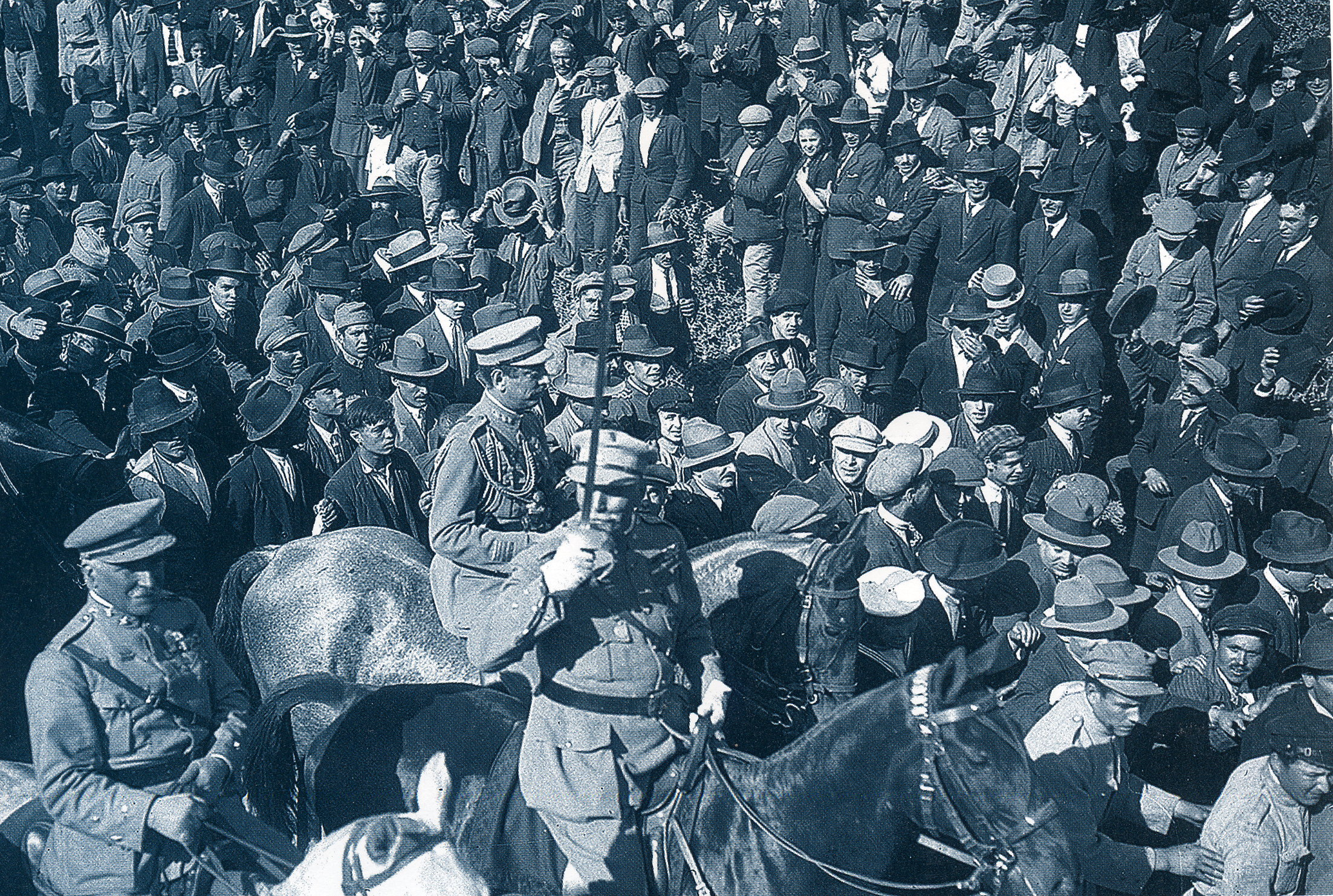
As he lingered in authorized limbo, the federal government of Portugal was overturned in a army coup. Portugal grew to become a dictatorship. Some historians speculate that Alves Reis’s practically profitable monetary coup lastly broke the Portuguese folks’s long-rotting confidence of their authorities, and because of this the coup was profitable. Whereas this speculation appears possible, even perhaps possible, it’s not possible to show.
The trial of Artur Virgílio Alves Reis and his accomplices lastly started on 06 Might 1930, greater than 4 years after his arrest. Ferreira and the Bandeira brothers have been among the many accused. Marang had been tried individually within the Netherlands, and located responsible of receipt of stolen property. As prosecutors deliberate for the trial, it was clear that the Portuguese authorized system lacked the instruments to deal with this novel crime, so the federal government invented a brand new course of: testimony can be given earlier than a decide, and 7 different judges would function a jury. The federal government additionally retroactively raised the utmost sentence for counterfeiting from three years to 25 years. These ex publish facto adjustments have been technically violations of the Portuguese structure, however nobody with authority raised any fuss. The brand new fascist dictatorship was nonetheless checking out the foundations.
The state hurled the regulation library on the Alves Reis syndicate, together with prices of counterfeiting, conspiracy, fraud, falsification of contracts, forgery of correspondence, forgery of credentials, and a laundry checklist of lesser prices. Mixed, prosecution and protection known as 85 witnesses.
When Artur Alves Reis was known as to testify on 11 Might 1930, he stood earlier than the decide and jury and confessed his crimes with obvious satisfaction. He detailed how he duplicated signatures with the pantograph, and the way he estimated which serial numbers to make use of. The room was in any other case silent throughout his dramatic five-hour oration. His so-called accomplices have been the truth is victims, he testified, unaware that his paperwork have been cast. Alves Reis did, nevertheless, assign blame to 1 different particular person: Sir William Waterlow. If solely Sir William had stopped him from committing this “silly and irresponsible” crime, he asserted, none of them can be on this sorry predicament. Nevermind that he had not even met Sir William in particular person.
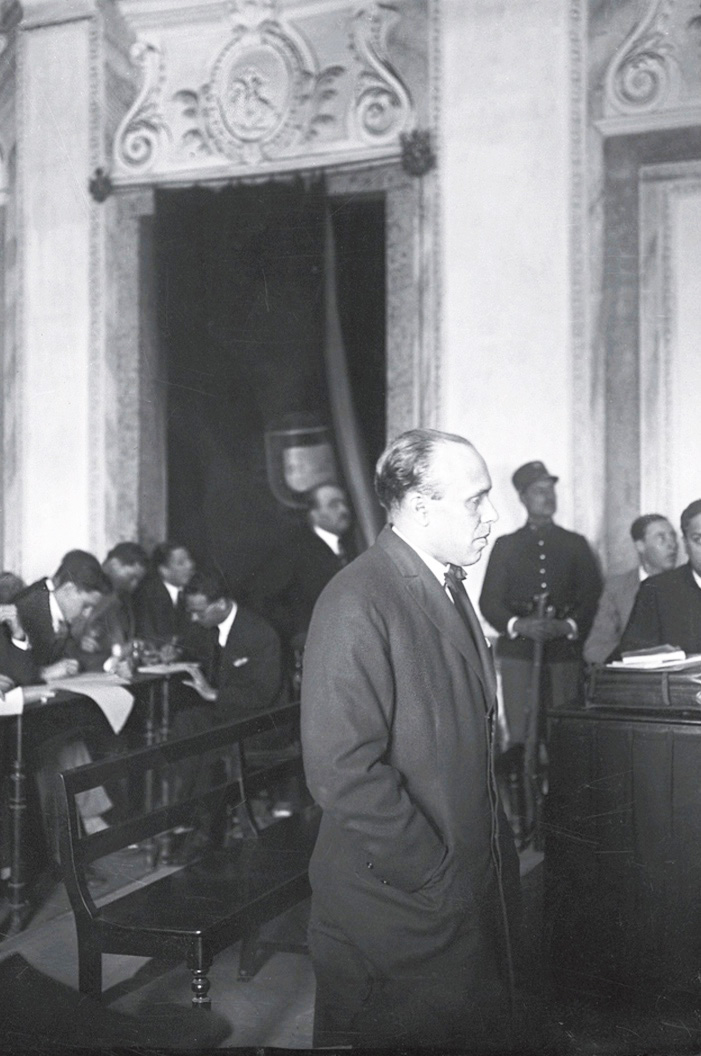
Provided that Alves Reis had confessed to his crimes, the one activity that remained for the protection was to attempt to reduce the severity of the punishment. Alves Reis’s legal professional argued that whereas the regulation prohibited one from forging banknotes, it was silent on the matter of paying a licensed printer to print them. So Alves Reis was not a counterfeiter, he was merely an unauthorized distributor. An “inflationist.” There was no crime right here, the protection argued, solely misdemeanor.
On 19 June 1930, all testimony had been given, and the panel of seven judge-jurors departed to deliberate. Six hours later, they reached their verdict. Artur Alves Reis, José Bandeira, and Adolf Hennies (in absentia) have been all discovered responsible, sentenced to twenty years every. Alves Reis’s spouse Maria was discovered responsible of collaborating together with her husband, however sentenced to time already served, and let out. Fransisco Ferreira and Bandeira’s former diplomat brother Antonio got 16 years every. Hennies, unable to be positioned, not to mention extradited, by no means served his time.
In the meantime, Sir William’s cousin and co-director Edgar Waterlow had introduced a movement earlier than the corporate board which was a thinly veiled dressing-down for Sir William’s half within the scandal. The movement handed, Sir William resigned. In 1932, the Financial institution of Portugal filed a lawsuit in opposition to Waterlow & Sons within the Excessive Courtroom in London. The case, which might come to be often known as the ‘Portugal Financial institution Word Affair,’ was one of the vital pricey and complicated trials in English authorized historical past. In the end the Home of Lords discovered that Waterlow & Sons breached their obligation of care and contractual obligation to the financial institution by printing the banknotes for the syndicate. One notably damning element was the report of telegrams to and from Romer, the agency’s consultant in Lisbon who had tried to warn Sir William that the contract failed the sniff take a look at. The Financial institution of Portugal was awarded £610,392 in damages. Sir William didn’t stay to see this ruling; after being elected Lord Mayor of London, he died of peritonitis on 06 July 1931, aged 60, nearly a full yr earlier than the case was determined.
Throughout his lengthy keep in jail, Alves Reis wrote an in depth account of his half within the Portugal Financial institution Word Affair, a two-volume e book set titled O Segredo da Minha Confissão—The Secret of my Confession. Gross sales of the paperbacks have been modest, however enough to supply some supplementary revenue for his destitute household.
When Artur Virgílio Alves Reis emerged from his incarceration practically 20 years later, on 07 Might 1945, the streets of Lisbon have been teeming with cheering, overjoyed crowds—to not rejoice his launch from jail, however to rejoice Germany’s unconditional give up to the Allies on that very day, bringing World Warfare 2 to an finish within the European theater. Throughout his time in jail, the as soon as trim and dapper grifter had gained appreciable weight and misplaced appreciable hair. He was supplied a job shortly after his launch—at a financial institution, of all locations—however he declined.
Alves Reis reunited with Maria, and joined his three grownup sons of their import/export enterprise. He turned away males who sought him out for his particular expertise. However he was nonetheless Artur Alves Reis, and the irresistible inclination for fraud remained in his bones. After a spell of official enterprise, he fell into his previous methods, and tried to bribe his manner right into a profitable contract to export rice from Brazil. He misplaced a fortune when the deal fell aside. He spent his remaining years operating numerous schemes in a quest for straightforward cash, however his luck was spent, and his grifting atrophied. On 08 July 1955, the “nice monetary genius of the age” suffered a coronary heart assault in Lisbon, aged 58. Thus Artur Alves Reis—notorious fraudster, counterfeiter, and unprecedented monetary coup attempter—exhaled his closing breath with no single escudo to his identify.
© 2022 All Rights Reserved. Don’t distribute or repurpose this work with out written permission from the copyright holder(s).
Printed from https://www.damninteresting.com/devouring-the-heart-of-portugal/
Because you loved our work sufficient to print it out, and browse it clear to the tip, would you think about donating a couple of {dollars} at https://www.damninteresting.com/donate ?

